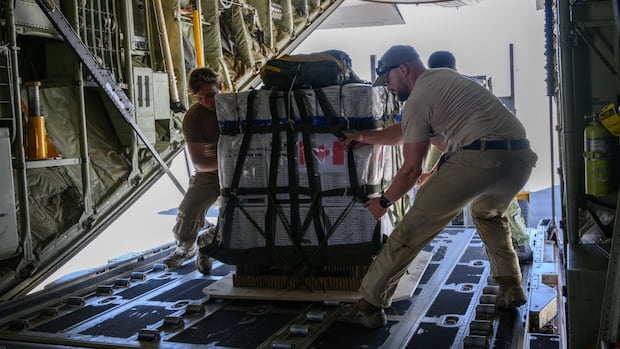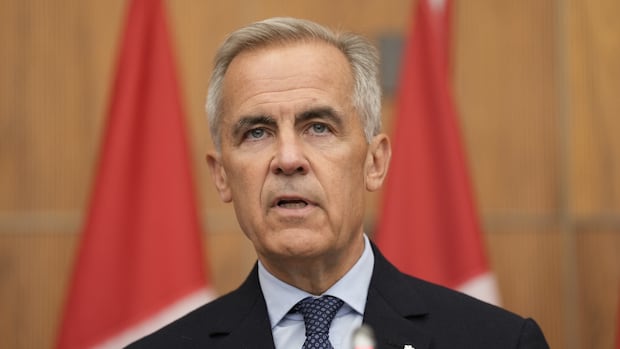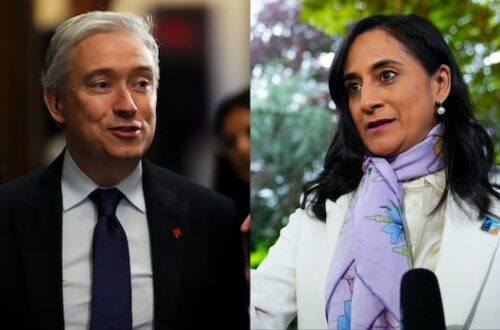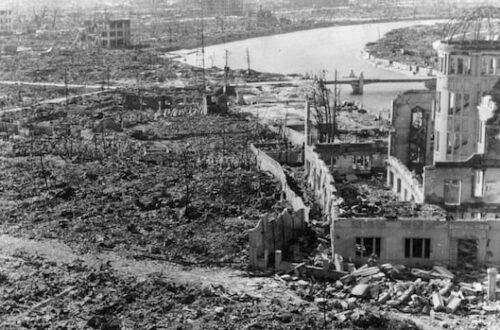The Canadian Armed Forces made their first humanitarian airdrop over Gaza on Monday using their own aircraft — delivering 9,800 kilograms of aid to Palestinians, according to Global Affairs Canada.
CBC News had exclusive access to the Canadian effort, which delivered food supplies like lentils, oil, milk powder and pasta using a CC-130J Hercules aircraft that departed from a Jordanian airbase.
The drop was part of an attempt by six countries to alleviate the hunger crisis in the Palestinian territory.
“Canada is taking these exceptional measures with our international partners as access to humanitarian aid in Gaza is severely restricted and humanitarian needs have reached an unprecedented level,” Global Affairs Canada said in a statement published Monday afternoon.
“Despite the scale of need, humanitarian partners face severe challenges in delivering life-saving food and medical assistance by land due to ongoing restrictions imposed by the Israeli government.”
In an interview with CBC News, Maj. Cam MacKay with the 436 Transport Squadron said the team “is very motivated to do this mission.”
“There are people that are very much in need of that aid on the ground, and for us to be able to assist Global Affairs Canada and being able to deliver that aid, it feels very good,” he said.
The Israel Defence Forces (IDF) said on social media that “120 aid packages containing food for the residents of the Gaza Strip were airdropped by six different countries, including Canada, which joined the airdrop operations for the first time today.”
The other five countries were Jordan, the United Arab Emirates, Egypt, Germany and Belgium, the IDF said.
Palestinians plead for more aid
CBC News’ freelance videographer in Gaza, Mohamed El Saife, captured footage on the ground at the same time as the Canadian plane was over Gaza. It was a chaotic scene as Palestinians rushed to an aid dropsite in the Nuseirat area in central Gaza.
Upon arrival at the site, men and women pushed each other, and some children could be seen climbing over the desperate crowds to get closer to the humanitarian aid.
“Look at the humiliation so I could get [aid],” 30-year-old Muhammad Ammar said in Arabic. “Everyone is cutting and killing people because they torment us. They don’t want us to eat.”

Ahmad Ayesh, 26, was holding a can of food that was completely crushed as crowds rushed to pick up the aid. Ayesh told CBC News that “of course we feel humiliated. Open the [border] crossings and let aid through normally.”
Israel has slightly loosened its tight restrictions on food and medicine reaching the Gaza Strip in response to an international outcry over starvation in the Palestinian territory.
Aid experts have said that airdrops are vastly less effective than truck convoys. Some of the pallets dropped by air earlier this week have fallen into the sea, and at least one has struck and killed Palestinians on the ground.
Israel blames Hamas for the suffering in Gaza and says it is taking steps for more aid to reach its population, including airdrops, pausing fighting for part of the day in some areas and announcing protected routes for aid convoys.
Planes from several countries — including for the first time a Canadian Armed Forces aircraft — airdropped humanitarian aid into Gaza on Monday in an attempt to alleviate the Palestinian territory’s hunger crisis. CBC’s senior correspondent Susan Ormiston reports from aboard a Jordanian military aircraft.
Karen Bongard, political counsellor of the Canadian Embassy in Jordan, told CBC News that “the level of humanitarian crisis in Gaza is intolerable, and Canada understands that airdrops are insufficient to meet the full needs of the people on the ground in Gaza.”
“However, when there’s this level of human suffering, inaction is not an option…. Airdrops are a last resort, but Canada stands committed to peace and security in this region and will continue to intensify our efforts to reach our goals,” Bongard said.
Prime Minister Mark Carney said on social media on Monday afternoon that the Canadian Forces airdropped “life-saving aid into Gaza” and that Canada is working with international partners “to develop a credible peace plan and will ensure aid moves forward at the necessary scale.”
Canada plans to recognize Palestinian state
The latest bloodshed in the decades-old Israeli-Palestinian conflict was triggered on Oct. 7, 2023, when Hamas-led fighters attacked southern Israel, killing about 1,200 people and taking 251 hostages, according to Israeli tallies. Israel’s offensive has since killed more than 60,000 Palestinians, according to Gaza health officials.
Last week, Carney cited Israel’s aid restrictions and the need to preserve a path to a two-state solution as reasons for declaring that Canada would officially recognize the state of Palestine.
He said the move is conditional on the Palestinian Authority undertaking serious reforms and holding an election next year for the first time in two decades.
At a news conference Wednesday, Prime Minister Mark Carney said Canada will recognize a Palestinian state at the United Nations General Assembly in September, but the West Bank’s governing body must agree to certain conditions including committing to holding an election in 2026.
Canada has for years called for a two-state solution, which means the eventual creation of a Palestinian state that would exist in peace alongside Israel.
Before last week’s announcement, Ottawa had been suggesting this would come at the end of peace talks between Palestinian and Israeli leaders.
But the federal government said last fall that recognition might come sooner because of the spread of Israeli settlements in the occupied West Bank and the tens of thousands of Palestinians killed in Gaza since the start of Israel’s military operation. Carney cited both concerns in his announcement on Wednesday.
Iddo Moed, Israel’s ambassador to Canada, told CBC’s Power & Politics the same day that Canada’s decision would “embolden” Hamas.






